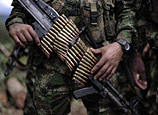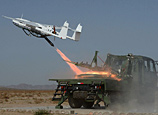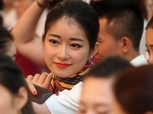
BEIJING, June 22 (Xinhua) -- In a highly symbolic episode of interaction, the first U.S. teacher in space, Barbara Morgan, recently exchanged letters with her Chinese counterpart, Wang Yaping.
"On behalf of teachers and students around the world, I send you greetings of honor and love as you orbit our Earth and prepare to teach your lessons from space," Morgan said in her letter.
In her reply, Wang, now aboard China's Shenzhou-10 spacecraft, thanked Morgan for her care and good wishes and expressed "our admiration and respect for what you have done for manned space programs and for education as well."
The rare correspondence is an embodiment of the sincere desire of the Chinese and U.S. peoples to maintain and boost bilateral communication and cooperation across the Pacific.
The affinity conveyed in the letters is resonant with the rapport Chinese President Xi Jinping and his U.S. counterpart, Barack Obama, fostered during their recent summit at the Sunnylands estate in California.
During their two-day meeting, Xi and Obama pledged to build a new type of great power relations that features engagement and cooperation in place of conflict and confrontation.
Xi summarized the concept in three phrases: "no conflict and no confrontation," "mutual respect" and "cooperation toward win-win results."
In a bid to promote mutual understanding and trust, Xi and Obama agreed to boost dialogue and communications at all levels.
Unfortunately, despite the wish of the peoples and the will of the leaders, deep-seated mistrust still haunts the trans-Pacific relationship, widely viewed as the most important bilateral relationship in today's world.
For example, in the 2011 U.S. federal budget, a clause inserted by Representative Frank Wolf banned the U.S. National Aeronautics and Space Administration and the White House Office of Science and Technology Policy from any joint scientific program with China.
The "Wolf Clause," regarded as "discriminative" even by many Americans, obviously ran counter to the trend of communications and cooperation between China and the United States. It also exposed some U.S. politicians' anxiety about China's rapid development.
Such uneasiness is rooted in the "trust deficit" between the two countries, which has become a major obstacle to the further growth of China-U.S. ties.
With their interests increasingly interwoven, it is high time that the two countries translated the wish and will into concrete action so as to cement mutual trust and expand bilateral cooperation.
Certain policymakers in Washington need to throw into the ashtray of history their ill-founded prejudices and phobias about the peacefully developing China, and learn to cooperate with Beijing on the basis of mutual respect and equality for win-win results.
















 Graduation ceremony of future flight attendants
Graduation ceremony of future flight attendants


![]()
